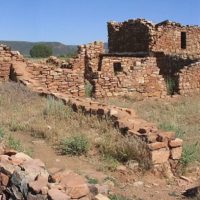Have a peek at the International Journal of Cultural Property for a summing up of an interesting workshop I attended last October in Arizona. I’m co-author on this but, really, the whole she-bang is due to the efforts of John Welch. I’m looking forward to seeing what comes next with this work!
Abstract
A 2018 workshop on the White Mountain Apache Tribe lands in Arizona examined ways to enhance investigations into cultural property crime (CPC) through applications of rapidly evolving methods from archaeological science. CPC (also looting, graverobbing) refers to unauthorized damage, removal, or trafficking in materials possessing blends of communal, aesthetic, and scientific values. The Fort Apache workshop integrated four generally partitioned domains of CPC expertise: (1) theories of perpetrators’ motivations and methods; (2) recommended practice in sustaining public and community opposition to CPC; (3) tactics and strategies for documenting, investigating, and prosecuting CPC; and (4) forensic sedimentology—uses of biophysical sciences to link sediments from implicated persons and objects to crime scenes. Forensic sedimentology served as the touchstone for dialogues among experts in criminology, archaeological sciences, law enforcement, and heritage stewardship. Field visits to CPC crime scenes and workshop deliberations identified pathways toward integrating CPC theory and practice with forensic sedimentology’s potent battery of analytic methods.
